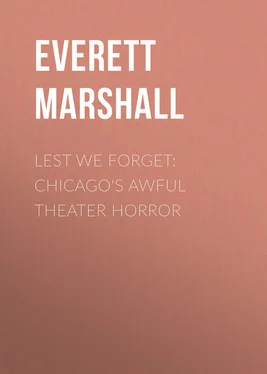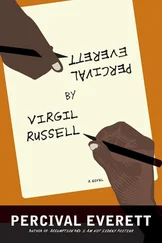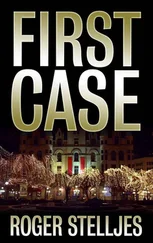Marshall Everett - Lest We Forget - Chicago's Awful Theater Horror
Здесь есть возможность читать онлайн «Marshall Everett - Lest We Forget - Chicago's Awful Theater Horror» — ознакомительный отрывок электронной книги совершенно бесплатно, а после прочтения отрывка купить полную версию. В некоторых случаях можно слушать аудио, скачать через торрент в формате fb2 и присутствует краткое содержание. Издательство: Иностранный паблик, Жанр: foreign_antique, foreign_prose, на английском языке. Описание произведения, (предисловие) а так же отзывы посетителей доступны на портале библиотеки ЛибКат.
- Название:Lest We Forget: Chicago's Awful Theater Horror
- Автор:
- Издательство:Иностранный паблик
- Жанр:
- Год:неизвестен
- ISBN:нет данных
- Рейтинг книги:3 / 5. Голосов: 1
-
Избранное:Добавить в избранное
- Отзывы:
-
Ваша оценка:
- 60
- 1
- 2
- 3
- 4
- 5
Lest We Forget: Chicago's Awful Theater Horror: краткое содержание, описание и аннотация
Предлагаем к чтению аннотацию, описание, краткое содержание или предисловие (зависит от того, что написал сам автор книги «Lest We Forget: Chicago's Awful Theater Horror»). Если вы не нашли необходимую информацию о книге — напишите в комментариях, мы постараемся отыскать её.
Lest We Forget: Chicago's Awful Theater Horror — читать онлайн ознакомительный отрывок
Ниже представлен текст книги, разбитый по страницам. Система сохранения места последней прочитанной страницы, позволяет с удобством читать онлайн бесплатно книгу «Lest We Forget: Chicago's Awful Theater Horror», без необходимости каждый раз заново искать на чём Вы остановились. Поставьте закладку, и сможете в любой момент перейти на страницу, на которой закончили чтение.
Интервал:
Закладка:
Marshall Everett
Chicago's Awful Theater Horror
INTRODUCTION
When Chicago was burning, a little girl in a christian home in a neighboring city stamped her foot indignantly on the floor and said: "Why doesn't God put out the fire?"
The cry of many an agonized heart, beating in children of a larger growth, has been: "Why doesn't a God of wisdom and love prevent such an awful occurrence as the Iroquois fire?" "I have lost all faith in God," said a dear friend of mine, as its full meaning began to break upon him.
When we were carrying out the dying and the dead from that horrible darkness and choking smoke to the outer air, those of us who were wont to pray could only say, "O God have mercy! O God have mercy!"
But there must be no panic in our faculties. Reason must not desert her rightful throne. Blinded by tears, we must not in our consuming passion of resentment against the sickening catastrophe, attempt with our puny arms to strike against God. He did not cause the calamity. No responsibility for it can be rolled upon Him. God is law; and his laws had been palpably broken by human negligence and incompetency. God is love; and human greed and selfishness had violated every principle of love which "worketh no ill to his neighbor."
God cannot coerce man, as one by sheer brute force can another. The savage father may break both the body and soul of his child. Not so God, those of his children. Man must render a voluntary obedience to the Divine command. By pains and crosses and sorrows and shame he may be led to that surrender. But he must say with a free, princely spirit at last, "I will to do thy will O God."
It is the old problem of evil with which this terrible tragedy has brought us face to face. The generic evil, out of which all evils spring, every giant intellect of the ages has grappled with, and it has thrown them all. The question is not "Why should God permit this special evil to come to us, which has well nigh paralyzed our city and thrilled the civilized world both with horror and sympathy, but why did he create the world at all and put man upon it?" The finite cannot measure the Infinite. Imperfection belongs to the one; perfection to the other. Where there is imperfection there is always the possibility of evil.
A reverent faith will bow before the mystery and yet master it with an undaunted courage. Evil must exist if the Universe is to be. The Universe is, and it is the best possible Universe God can create. If he could have given us a better one he would not be the God we revere.
Evil is the vast, dark background against which He brings out the brightest pictures of beauty and life. From a "Paradise Lost" comes forth a "Paradise Regained" with its transcendent glory of progress, and allegiance to law and love.
"Calvary and Easter Day,
Earth's saddest day and gladdest day,
Were but one day apart."
God did not forsake his son in that supreme hour of anguish upon the Cross, when he cried out "My God, My God, why hast thou forsaken me?" He has never forsaken his world, nor the sinning and suffering souls that are in it. "God in history," is faith's jubilant assertion. He is in its minutest incidents and in its mightiest events, "in the rocking of a baby's cradle and the shaking of a monarch's throne," in the fiery furnace of the Iroquois Theater and in the most joyous assembly of his adoring saints.
God permitted this great evil in harmony with man's free will; he did not cause it. The evidence is overwhelming that human law, as well as divine law, had been consciously or unconsciously defied. Two thousand lives or more were brought together in a building professedly fire-proof, and warranted as the best, because the latest of its kind, in the city if not of the continent. It was not fire proof. The law forbade the crowding of aisles; they were filled from end to end, until almost every inch of standing room was taken up. The unusual number of exits was boasted of. Most of them were unseen or actually bolted and locked. The alleged fire proof curtain was a flimsy sham, and was resolved in almost a moment of time, into scattered fragments by the surging flames. The scenery was of the most combustible material, loaded down with paint and oil. Not a bucket of water was on the stage, and only one water stand-pipe without any hose. There never had been a fire apparatus of any kind in the balcony or the gallery. There was none in the auditorium except one small water stand pipe. There was not a fireman to answer the call for help. At no time had there been a fire drill by the employes of the theater. There were no notices posted to tell what to do in case of fire. There was no fire alarm box anywhere in the structure. Common prudence and common sense were completely set aside. Coroner Traeger in advance of the final finding of the jury, is reported to have said: "Sufficient proof has been already found to show that there was gross mismanagement and carelessness. There is no need of denial. Instead of being the safest theater in Chicago, the Iroquois was the unsafest."
But He who "maketh the wrath of man to praise him," who is ever bringing good out of evil, will overrule and is already overruling this dire calamity for the well being of mankind.
As I looked upon the charred and mangled and bruised bodies of tender women and little children and once strong men; as I listened to the moans of agony, and the cry of the living, tortured ones for help and for loved friends whom they had left behind or been separated from as the fiery blast swept them onward and outward, I said in my haste, "you all are 'martyrs by the pang without the palm'." I do not say it now. Martyrs indeed they were, by the criminal neglect of recreant men. But the palm is theirs. They have saved others, themselves they could not save. Thousands, perhaps millions, will in the future be secure in their places of resort, because these went on that fateful day to their inevitable doom. Mayors, architects, fire-inspectors, managers, stage carpenters, electricians, ushers and chiefs of police in every city have had their duty burned into their inmost consciousness by this consuming fire.
Human law, which has been so flagrantly set at naught, demands punishment. The public conscience will be outraged if the guilty parties do not meet stern, inexorable justice. It is not vengeance that is sought, for "Vengeance is mine, I will repay, saith the Lord."
But those who are immediately responsible, have not been the only transgressors, although they must suffer for their own guilt, and also vicariously for the sins of omission by others. For we have all sinned and come short of our duty. A common blame rests upon the whole community. Many a minister has been preaching upon the fire, but has his own church, perhaps crowded to the door, been safe while his eager congregation has listened to his impassioned utterances? Suppose the unexpected had happened, and the cry of fire had been heard and bursting flames been seen, would his hearers have escaped unhurt? Not if the church doors swung inward instead of outward; not if the means of escape were not abundant; not if camp chairs blocked the passages to the street. Who then would have been responsible? The clergymen, the church officers, the janitor, with the municipal or legal authorities would have had to share the blame.
Nearly two score of our city school teachers perished in the theater. How many school buildings are in such an imperfect condition today that thousands of young lives are in constant danger? Suppose again the unexpected should happen and tragedies be enacted which might even surpass the Iroquois disaster, would the Mayor, and his subordinates and the Board of Education and the teachers be held guiltless? Yet that fearful contingency might have taken place.
Читать дальшеИнтервал:
Закладка:
Похожие книги на «Lest We Forget: Chicago's Awful Theater Horror»
Представляем Вашему вниманию похожие книги на «Lest We Forget: Chicago's Awful Theater Horror» списком для выбора. Мы отобрали схожую по названию и смыслу литературу в надежде предоставить читателям больше вариантов отыскать новые, интересные, ещё непрочитанные произведения.
Обсуждение, отзывы о книге «Lest We Forget: Chicago's Awful Theater Horror» и просто собственные мнения читателей. Оставьте ваши комментарии, напишите, что Вы думаете о произведении, его смысле или главных героях. Укажите что конкретно понравилось, а что нет, и почему Вы так считаете.












